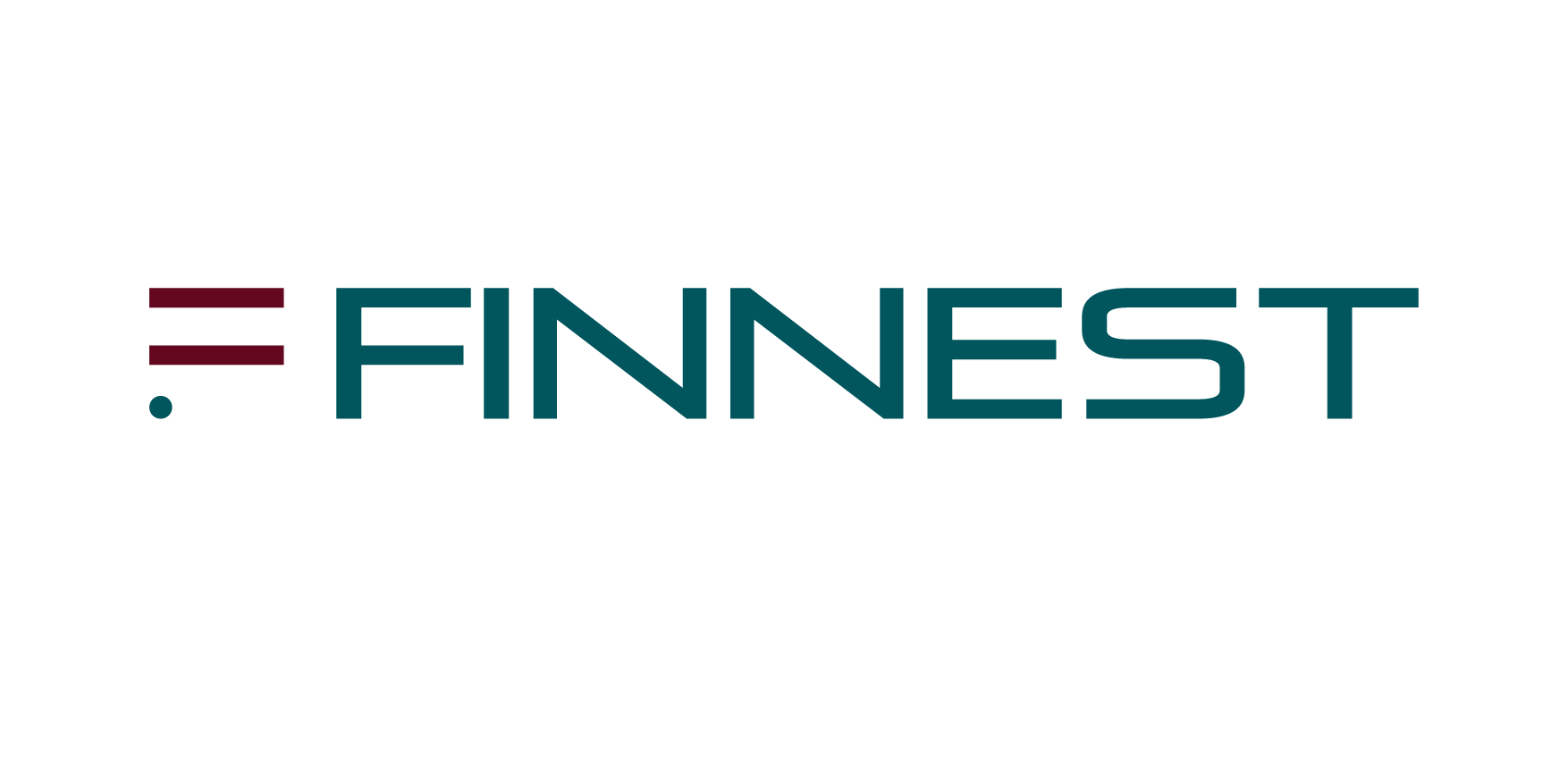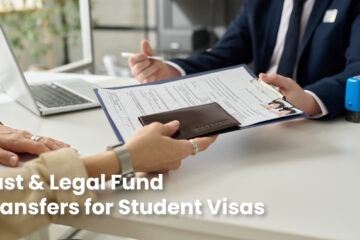Introduction
When deciding on the prospect of studying abroad, the initial confusion mostly lies in how to finance it. Immigration authorities require a show of financial stability to ascertain a student’s qualification to study abroad. International students are required to present documents showing that they can support themselves while studying. This document is commonly referred to as proof of funds. It demonstrates that the student would have sufficient funds to cover tuition, living expenses, and other costs for the duration of the studies.
Figuring out the requirements of different countries is a complex task in itself, let alone navigating the process, which is complex and overwhelming. Making any errors while preparing your financial documentation might lead to visa failure or delays in visa approval.
What is Proof of Funds?
Demonstration of the international student’s financial ability to support themselves during the period of acquiring education is referred to as proof of funds. It is a mandatory set of requirements set by the immigration departments of most countries where international students flock in. This is done to ensure that students have the necessary funds to cover tuition fees, living expenses, and other associated costs related to settling in a foreign country. The amount would have to cover the entire period of education of the student.
Bank statements including fixed deposits, or other verified financial assets are a common mode of stating financial proof of the student or their sponsors. Immigration officers use this as a way to assess the student’s financial preparedness and to reduce or curb the risk of students becoming a financial burden on their host country.
Why is Proof of Funds Important?
- Visa Approval: Visa applications can be delayed or denied in cases where there is not enough proof of funds. Financial capability document assures the immigration authorities that students won’t face financial hardship or have to depend on external aid for financial needs.
- Living Expenses: Other than tuition, students need to prove they can afford living costs including accommodation, food, transportation, and health insurance while abroad.
- Avoiding Financial Risk: Some countries may require students to show financial proof before enrollment to ensure they won’t drop out due to financial issues.
Country-Specific Proof of Funds Requirements
Every country has unique rules regarding demonstrating financial ability for student visa applications. While the idea of displaying funds stays consistent, the necessary minimum amount, the forms of acceptable proof, and additional financial documentation differ based on where you are traveling to. In the following section, we will examine the financial evidence needed for a few of the top study-abroad locations.
1. United States (USA)
International students studying in the USA must demonstrate sufficient funds to cover their tuition and living expenses for a minimum of one year. This is typically documented through:
- Bank statements showing sufficient funds.
- Scholarship award letters (if applicable).
- Affidavits of support if funds are provided by family or sponsors.
The university, location, and the program are amongst the factors which decide the total amount required for the financial statement. Generally, students should expect to show atleast USD 18,000 (₹15,00,000 approx) – USD 24,000 (₹20,00,000 approx) depending on tuition and living costs in different regions of the U.S.
2. United Kingdom (UK)
The UK has specific requirements based on whether students will be studying inside or outside of London. For those in London, students must show funds to cover at least £1,334 per month for living expenses (up to 9 months), while those outside London must show £1,023 per month.
- Students must also show they have enough funds to cover their first year of tuition.
- Acceptable financial proof includes bank statements, loan letters, or official sponsorship letters.
3. Canada
Canada requires international students to show proof that they can support themselves during their studies. The required amount typically includes tuition plus CAD $10,000 for living expenses per year, with additional amounts required for dependents.
- Students can provide proof of a Guaranteed Investment Certificate (GIC), bank statements, or proof of a student loan.
4. Australia
Australia mandates that students show funds for 12 months of living costs, tuition, and travel. As of the latest figures, students need at least AUD $21,710 per year for living expenses.
- Acceptable forms of proof include bank statements, loan letters, and proof of scholarships.
- If a student is accompanied by family members, additional funds are required for their living expenses.
5. Germany
Germany requires students to show at least €11,208 (around €934 per month) in a blocked account to cover living expenses for one year. A blocked account ensures that students cannot withdraw all their money at once and can only access a fixed monthly amount.
- Other forms of proof include bank guarantees or scholarship confirmation.
Common Financial Documentation for Most Countries:
- Bank Statements: At least 3 to 6 months’ worth of statements showing sufficient funds.
- Fixed Deposits: Certificates of deposits in the student’s or sponsor’s name.
- Loan Letters: Proof of educational loans.
- Sponsorship Letters: If a sponsor (family or organization) is funding the education, they need to provide an official affidavit of support.
Financial requirements vary according to each country. However, acquiring the right documentation prepared and verified is important for a smooth visa process. In the next section, we’ll explore how Finnest can help you navigate these requirements with ease.
How Finnest Simplifies Financial Assistance
Understanding the intricate financial paperwork for your visa can be overwhelming. The process may seem daunting and full of possible obstacles, from grasping the precise requirements to completing the essential paperwork. This is where Finnest comes in to provide a customized and hassle-free solution for meeting all your financial proof needs.
At Finnest, we recognize that each student’s financial situation is unique. That’s why we don’t offer one-size-fits-all solutions. Instead, we provide a personalized financial plan that takes into account your individual needs, your chosen country, and the specific requirements of the embassy you’re applying to.
Risks Related to Unauthorized “Show Money” Sourcing
1. Visa Rejection Risks:
Using “show money,” or temporary funds, to prove financial capability for a student visa can lead to serious legal consequences. Immigration authorities in most countries require genuine proof of financial stability to ensure students can support themselves during their studies. If authorities discover that the funds shown are not legitimately available for the entire duration of the student’s stay, they may reject the visa application outright. This practice violates immigration laws and undermines the trust between applicants and visa officers, which can lead to future visa denials, not just for studying but for any type of travel to that country.
2. Long-term Legal Repercussions:
Even if a student manages to obtain a visa using “show money,” the deception can catch up with them later. Many countries conduct periodic financial audits of international students to ensure they continue to meet the requirements of their visa. If it is discovered that a student used temporary funds or fake accounts to initially meet visa requirements, this could lead to the revocation of their student visa. In some cases, it could result in deportation, fines, or a permanent ban from entering the country. These legal consequences can severely impact the student’s future opportunities for international education and travel.
3. Ethical and Legal Violations:
Using “show money” is not only a violation of immigration regulations but also breaches ethical standards. Immigration laws are designed to ensure students have the financial resources to support their education and living expenses abroad without becoming a burden on the host country. Providing false financial documentation is a form of fraud, which can result in criminal charges. This fraudulent practice tarnishes the reputation of legitimate applicants and could prompt governments to introduce stricter immigration rules, making it harder for future students to apply legally.
How Finnest Helps:
1. Personalized Financial Assessment
The journey begins with an in-depth consultation. Finnest’s experienced financial advisors assess your current financial situation, looking at factors like family income, savings, and any available assets. This personalized approach ensures that we fully understand your financial background and create a custom plan that meets visa requirements.
2. Tailored Financial Assistance
Based on the financial assessment, Finnest designs a customized financial capability document plan. This could involve securing funds in a bank account or setting up a fixed deposit—both popular forms of financial proof accepted by embassies. For students who may not have immediate access to large sums of money, Finnest explores options like education loans or even gold loans.
3. Hassle-Free Documentation
Finnest assists with gathering all the necessary documentation and ensures everything is prepared to meet the specific criteria set by your destination country. Whether it’s organizing bank statements, creating affidavits of support, or producing scholarship letters, our team verifies all documents to avoid any errors or discrepancies that could lead to delays.
4. Full Transparency
Unlike many other service providers, Finnest believes in complete transparency from start to finish. We explain every step of the process, the costs involved, and what to expect during the visa application process. There are no hidden fees or surprises—just clear guidance to help you get your show money in place without unnecessary stress.
5. Post-Submission Support
Finnest continues to provide support after your financial proof has been submitted. We remain in contact during the visa application process, providing guidance and help until you obtain your visa approval. This continuous assistance guarantees that students remain confident throughout the entire process.
6. Expertise in International Education Financing
With our deep understanding of the visa processes for countries like the UK, USA, Canada, Australia, and Germany, Finnest is uniquely positioned to help you navigate even the most complex financial requirements. Finnest’s knowledge can greatly impact the smooth and successful outcome of your visa application, whether it involves ensuring your bank statements are in the correct format or negotiating advantageous loan terms.
The Finnest Advantage
Finnest is dedicated to ensuring that your study abroad experience is as smooth as can be. We remove the uncertainty from meeting visa financial requirements by offering specialized guidance and personalized solutions, allowing you to concentrate on getting ready for your education overseas.
Common Mistakes to Avoid in Financial Documentation
While the process of securing financial capability document and providing financial proof for a student visa may seem straightforward, there are several common mistakes that students make during their application. These errors can cause delays, additional scrutiny from immigration authorities, or even visa denials. Fortunately, with the right preparation and guidance, these pitfalls can be easily avoided.
1. Insufficient Funds or Incorrect Amounts
One of the most common mistakes is failing to meet the minimum financial threshold required by your destination country. Each country has specific guidelines for how much money you need to show for tuition, living expenses, and additional costs.
- Tip: Make sure to verify the exact amount required for the country you’re applying to and ensure your bank statements reflect that amount (including any additional funds for dependents or extra fees).
2. Using Unacceptable Forms of Financial Proof
Not all forms of financial proof are accepted by immigration authorities. For example, some countries may not accept funds that are tied up in stocks, bonds, or property. Additionally, relying on unverifiable funds, like cash, can also lead to complications.
- Tip: Stick to acceptable financial proofs like bank statements, fixed deposits, or official loan letters. Finnest ensures that the documentation you provide complies with the embassy’s requirements.
3. Last-Minute Fund Transfers
A sudden influx of money into your account close to the visa application date may raise red flags for visa officers. They may suspect that the funds are borrowed temporarily just to fulfill visa requirements.
- Tip: Ensure that the funds are in your account well in advance—typically at least 3 to 6 months before applying for the visa. This helps demonstrate genuine financial stability.
4. Incorrect or Incomplete Documentation
Providing incomplete or incorrectly prepared financial documents can lead to delays or even visa rejection. This includes errors in dates, names, or currency values, as well as missing signatures or official stamps.
- Tip: Double-check all documentation for accuracy and completeness. Finnest helps with thorough documentation reviews to ensure everything is properly formatted and ready for submission.
5. Failure to Account for All Living Costs
Sometimes students overlook additional costs like medical insurance, accommodation, or travel expenses, resulting in an underestimation of the total amount required for show money.
- Tip: Include all possible expenses in your financial plan, including living costs, medical insurance, travel, and accommodation. Each country has a set minimum for these costs, and Finnest helps students estimate their expenses based on their destination and lifestyle.
6. Lack of Transparency with Sponsors
Many students receive financial support from family members or sponsors. However, failing to properly document this relationship, or showing inconsistencies between the sponsor’s income and the funds in their account, can lead to complications.
- Tip: Make sure any sponsor providing financial support prepares an affidavit of support and provides verifiable income sources. Ensure that the sponsor’s financial documentation aligns with the visa requirements.
7. Inconsistent Financial Records
Visa officers will look for consistency in financial documents. Any discrepancies—such as unexplained transfers, sudden deposits, or fluctuating balances—can lead to suspicions of financial instability.
- Tip: Ensure that your financial records are consistent and transparent. Finnest helps students keep track of financial transactions and prepares clear, concise records that align with visa requirements.
Avoiding These Pitfalls with Finnest’s Expertise
Finnest’s deep expertise in navigating the visa process ensures that all financial documents are prepared accurately and on time. By offering personalized consultations, we help students avoid these common mistakes and improve their chances of visa approval.
Conclusion
At Finnest, our commitment to supporting students doesn’t stop at helping them meet visa requirements. We believe in empowering students with the knowledge and tools they need to manage their finances successfully during their time abroad. Whether it’s through personalized loan assistance, detailed budgeting plans, scholarship guidance, or financial literacy workshops, Finnest ensures that students are financially prepared for every aspect of their study abroad journey.
Frequently Asked Questions
1. What is proof of funds, and why is it required for a student visa?
Proof of fund is the financial proof that students must provide to demonstrate their ability to support themselves financially while studying abroad. It is required by Immigration authorities to ensure that the student has enough funds to cover tuition, living expenses, and other costs during their stay. The amount required and acceptable forms of proof vary by country, but it typically includes bank statements, fixed deposits, or loan approval letters.
2. How long should the funds be in the account before applying for a visa?
In most countries, immigration authorities typically require that the necessary funds have been in the account for a minimum of 3 to 6 months before applying for a visa. This demonstrates economic security and lessens doubt that the money was just borrowed for a short period. It is crucial to verify the particular specifications of your destination as each country may have slightly varying regulations.
3. Can I use a sponsor’s bank account as financial proof for my student visa?
Yes, many countries allow students to use a sponsor’s financial resources as proof, provided that the sponsor is a family member or someone close to the student. The sponsor must typically provide an affidavit of support, bank statements, and income proof to verify that they can financially support the student during their studies.
4. What happens if my financial documentation is rejected?
Failure to provide financial documentation meeting visa requirements could result in delays or possibly rejection of your application. Immigration officials may require more evidence, ask for revisions, or possibly reject the visa. It is crucial to make sure that every financial document is accurately completed, coherent, and complies with the regulations of the country it is intended for. Finnest’s services ensure that your documentation is both accurate and compliant.
5. What other financial assistance options are available for international students?
In addition to providing financial assistance, students can explore various financial assistance options like education loans, scholarships, or grants. Many countries also allow part-time work for international students, which can help cover living expenses. Finnest assists students in exploring these options, guiding them through loan applications, and providing scholarship advice to ease the financial burden of studying abroad.




